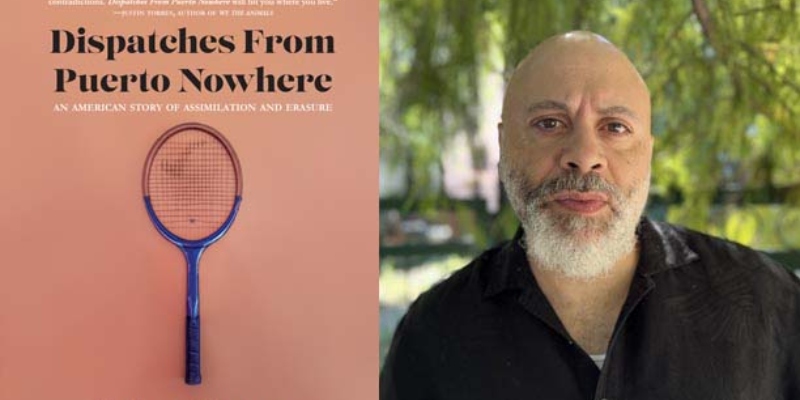Robert Lopez on Life Before We’re Born and Why Memory is Like a Failed Method Actor
In Conversation with Mitzi Rapkin on the First Draft Podcast
First Draft: A Dialogue of Writing is a weekly show featuring in-depth interviews with fiction, nonfiction, essay writers, and poets, highlighting the voices of writers as they discuss their work, their craft, and the literary arts. Hosted by Mitzi Rapkin, First Draft celebrates creative writing and the individuals who are dedicated to bringing their carefully chosen words to print as well as the impact writers have on the world we live in.
In this episode, Mitzi talks to Robert Lopez about his new memoir Dispatches from Puerto Nowhere: An American Story of Assimilation and Erasure.
Subscribe and download the episode, wherever you get your podcasts!
From the episode:
Mitzi Rapkin: It’s so interesting because I’ve heard that in general, people are either more fixated on the past or the future. Like when people ruminate, some people are always thinking about the future, and some people are always thinking about the past. And I think as a species, we’re so curious, especially in the Western world, about death, because we don’t know what’s going to happen after we die, so we kind of fixate on it.
But we also really fail, and this is something I got out of your book, is that we don’t think that much about before we were born. What about that chain of DNA? Those are the kind of the questions that this book brought up. There’s a great confluence of many things that brought you to where you are today.
Robert Lopez: Yeah, and I think for me, I’ve always been about what’s next. So, looking back has never been an activity that I’ve engaged in that much at all. In fact, I’ve often had a thought experiment exercise that I’ve given to students over the years. I would ask them, what’s more important to you, a memory or a good sandwich? And we would talk and I would advocate for the sandwich, because you can experience it, you have it in front of you, and you could look forward to it while you are enjoying it. It’s omnipresent – the sandwich, right? It’s here.
Whereas a memory is so intangible. Very like a method actor, or a failed method actor, I can’t feel the emotion if I’m recalling a memory either silently to myself or relaying a story of the past to a friend, I could recite it like some kind of human jukebox, but I can’t feel whatever feelings I had back then. I no longer have access to that emotional state. And that’s always been to me a drawback of memory and why I choose in the thought experiment, the turkey sandwich, because I could feel it, it’s right here.
And so, it’s really interesting having that debate with students, because it comes up every semester pretty much. And I enjoy it. And so many people choose the memory they’d rather have the memory than have the turkey sandwich. And yeah, what happened before we were born, I am fascinated. But what’s interesting is that I’m a huge history buff, and I love history, but it’s never been extended to my own history. It was like academic history.
The Egyptians and the Romans and the Greeks and ancient Asia, and the Ming Dynasty in China, you know, it’s history of the world that has fascinated me. But my own history, it never occurred to me to be curious about. And so, writing this book and thinking about these issues was a spark for me thinking about, Oh, yeah, what happened before I was born, not just with my father and life in Brooklyn in the 40s and 50s, but my grandfather, and then his parents and grandparents and assuming that they were on Puerto Rico for generations, but I have no idea. So, playing with those possibility now for me and thinking about it is both new and interesting.
***
Robert Lopez is the author of three novels, Part of the World, Kamby Bolongo Mean River —named one of 25 important books of the decade by HTML Giant, All Back Full, and two story collections, Asunder and Good People. His novel-in-stories is called, A Better Class Of People. His new nonfiction book is called Dispatches from Puerto Nowhere. He teaches at Stony Brook University and has previously taught at Columbia University, The New School, Pratt Institute, and Syracuse University. He lives in Brooklyn, New York




















